Here’s the full summary of each month in the Environmental Calendar:
- January – Spill Control
- Focus: Managing accidental oil and chemical spills.
- Importance: Prevents environmental harm, avoids prosecution, and maintains a positive public image.
- Guidelines: Respond immediately to spills, contain and clean up spills with appropriate PPE, and dispose of contaminated materials properly.
- February – Fuel & Oil
- Focus: Preventing water pollution from oil and fuel spills.
- Importance: Avoids legal repercussions, reduces cleanup costs, and protects wildlife.
- Guidelines: Store oils safely, use bunding and spill kits, and avoid storage near water sources.
- March – Dust & Air Quality
- Focus: Reducing air pollution, especially from dust particles harmful to health.
- Importance: Protects neighbors, avoids work delays, and reduces ecological impact.
- Guidelines: Keep surfaces damp, restrict dust-generating activities, and use protective storage.
- April – Silt Management
- Focus: Preventing fine soil particles from entering water systems.
- Importance: Protects aquatic life, avoids legal issues, and reduces pollution on site.
- Guidelines: Use designated drainage systems, prevent soil erosion, and keep areas clean.
- May – Cement & Concrete
- Focus: Managing risks from cement and concrete use in construction.
- Importance: Prevents pollution of water bodies and legal consequences.
- Guidelines: Store materials away from water sources, avoid washouts into drains, and report spills.
- June – Tree Protection
- Focus: Preserving trees to support biodiversity and combat climate change.
- Importance: Trees clean air, provide shade, and are essential for biodiversity.
- Guidelines: Avoid cutting trees, protect them from damage, and check for nesting birds.
- July – Noise & Vibration
- Focus: Minimizing noise pollution to prevent disturbances to local communities.
- Importance: Maintains good community relations, avoids fines, and reduces health risks.
- Guidelines: Restrict noisy activities to set hours, use noise-reducing methods, and keep public areas quiet.
- August – Washing Plant and Machinery
- Focus: Proper disposal of contaminated wash water to prevent pollution.
- Importance: Prevents toxic chemicals from harming aquatic ecosystems and avoids prosecution.
- Guidelines: Use designated washdown areas, contain residues, and consult before using cleaners.
- September – Storage & Use of Petrol & Oil
- Focus: Safe handling and storage of petrol and oil to avoid environmental contamination.
- Importance: Protects against spills, avoids legal issues, and minimizes cleanup costs.
- Guidelines: Store fuels securely, use spill kits, and never leave refueling unattended.
- October – Material Handling & Housekeeping
- Focus: Proper storage and disposal to reduce waste and pollution risks.
- Importance: Reduces costs, promotes safety, and enhances site image.
- Guidelines: Use materials efficiently, avoid over-ordering, and recycle where possible.
- November – Segregation of Waste
- Focus: Sorting and disposing of waste to minimize environmental impact.
- Importance: Prevents pollution, avoids legal issues, and promotes recycling.
- Guidelines: Separate waste types, dispose of correctly, maintain tidy sites, and label containers clearly.
- December – Pumping Water
- Focus: Proper handling of water pumped from excavations to prevent contamination.
- Importance: Avoids water pollution, protects wildlife, and prevents regulatory issues.
- Guidelines: Seek management approval before pumping, secure fittings, monitor water clarity, and discharge responsibly.
This Environmental Calendar provides a structured approach to handling monthly environmental challenges, supporting compliance, safety, and sustainability throughout the year.
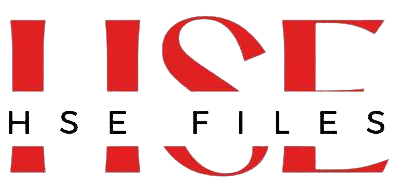
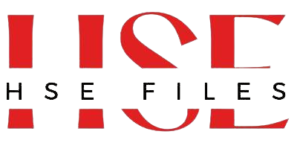
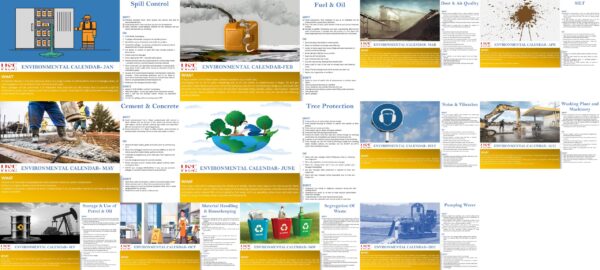
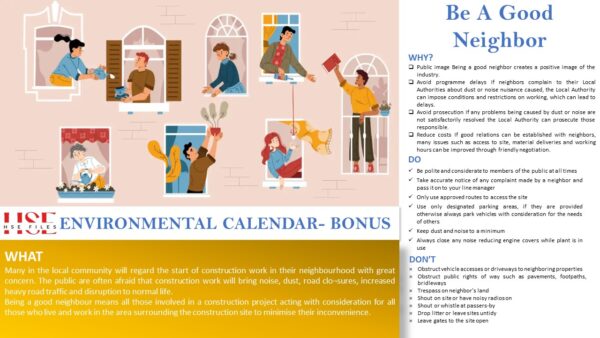
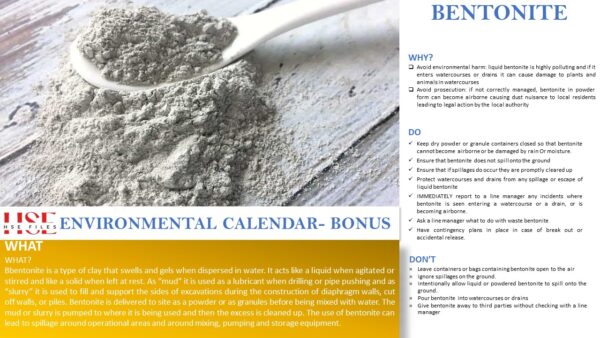
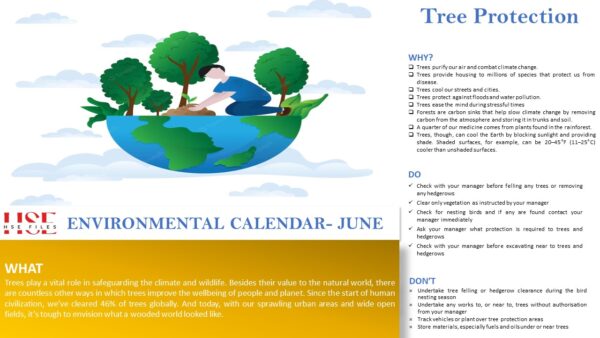
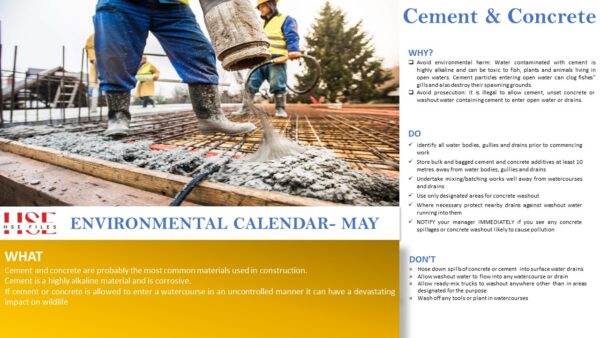
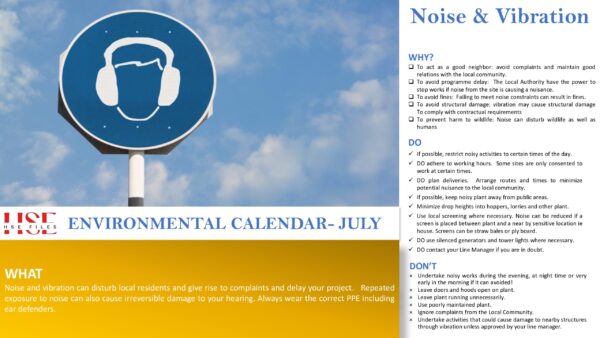
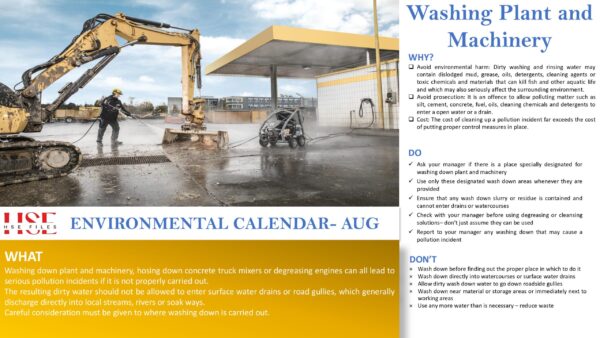
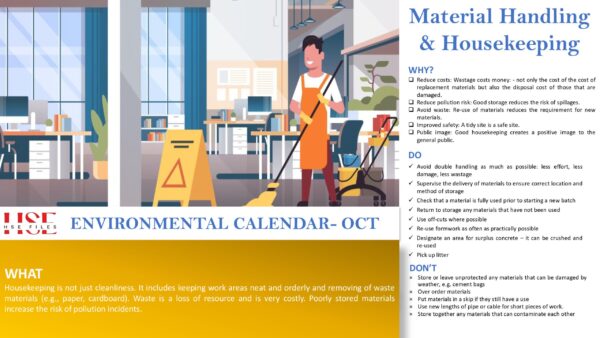
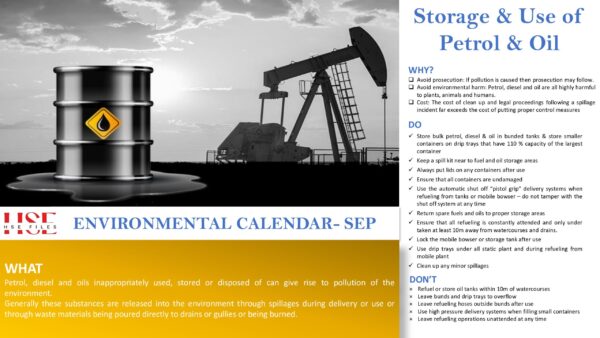
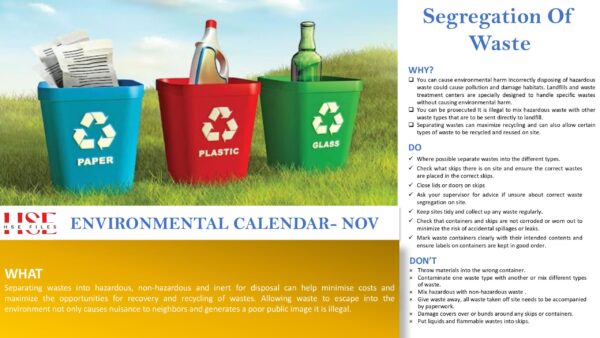
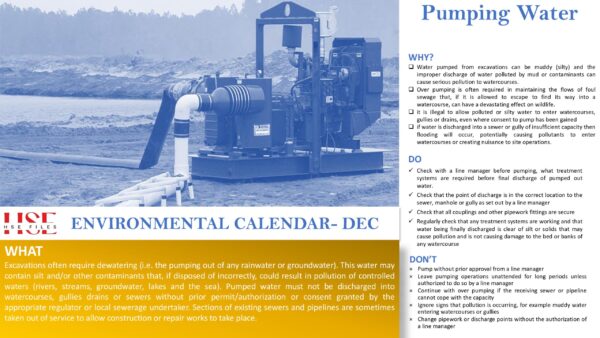
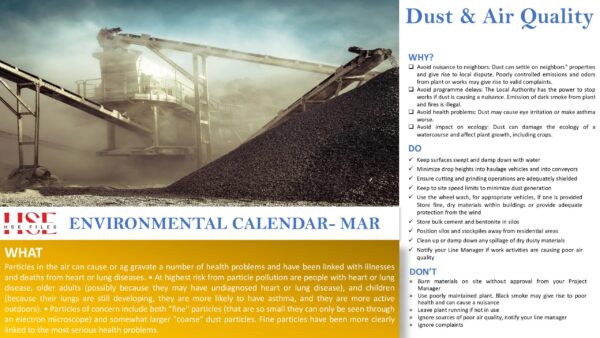
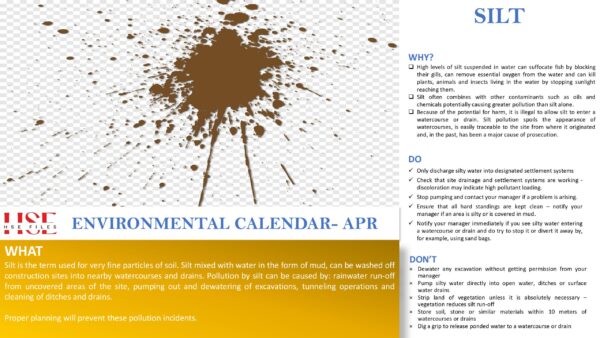
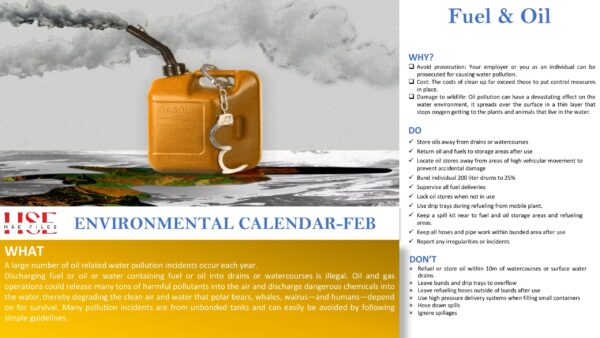
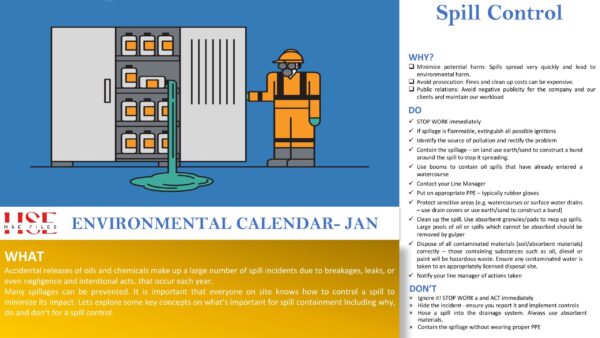
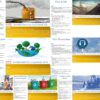

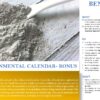
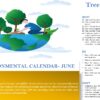
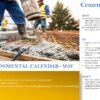
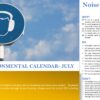
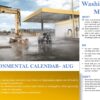
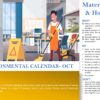
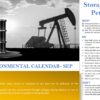
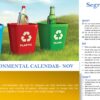
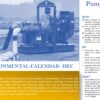
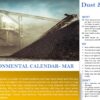
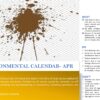
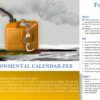
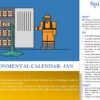
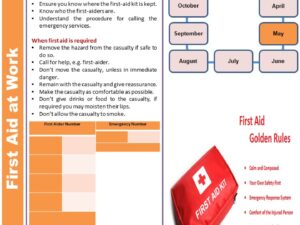
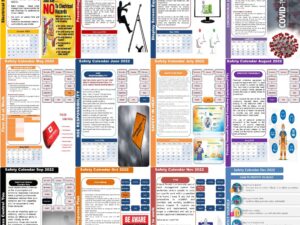

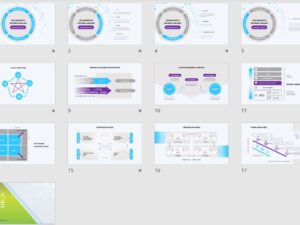
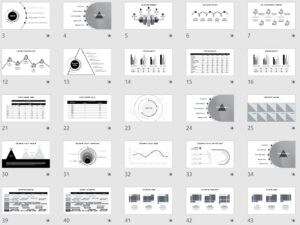

Reviews
There are no reviews yet.